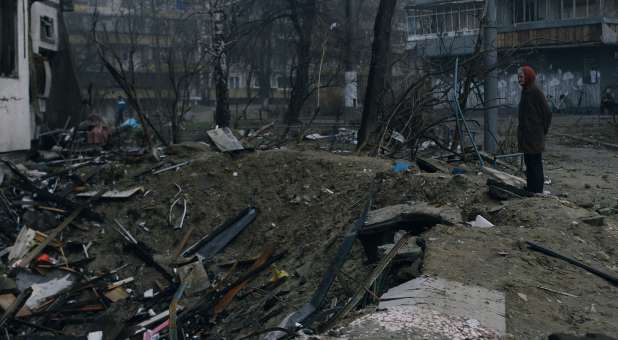For two years the world was focused on the COVID-19 pandemic. The advocates for one-world government used it as an opportunity to call for a “great reset.” Then on Feb. 24, Vladimir Putin invaded the neighboring country of Ukraine, and suddenly war was all the media covered.
The situation in Ukraine changes almost daily, but the mainstream media has ignored a serious part of the story: the hatred Putin has not only for Ukraine but for Pentecostals in both Russia and Ukraine.
Persecution against Pentecostals is rarely covered. Yet this serious issue should move the worldwide Pentecostal community to deep concern, prayer and speaking out against it.
In the 1990s I visited both Russia and Ukraine at the time the Soviet Union was breaking up. The churches I visited were more vibrant in Ukraine, and since then they have exploded in growth. I’m told Pentecostalism is stronger there than in any other European countries. Some big churches in Ukraine were part of what was called the Orange Revolution in 2004—the push for democracy.
Putin apparently holds Pentecostals and other Protestants responsible for turning Ukraine toward Europe, for their participation in the Orange Revolution and the EuroMaidan protests against government overreach in 2014. He knows their commitment to religious freedom and to democracy, which he sees as a deadly virus threatening the body politic of Mother Russia. It must be eradicated to prevent the virus from spreading; Russia is only safe when ruled by a strong autocrat who suppresses dissent.
My source for this is a longtime friend, Gary Kellner, who wrote about this in March on our charismanews.com website. Kellner is the founder and former executive director of the International Center for Christian Leadership, the first graduate school of leadership studies in the former Soviet Union. He founded Save Ukraine Now, an interdenominational organization supporting the Ukrainian people through advocacy and humanitarian aid, in 2014.
In an insightful guest editorial, Kellner wrote that Putin knows Protestants in Europe have a tradition of speaking truth to power since the time of Martin Luther and John Calvin, yet the Russian Orthodox Church has been a key supporter of the Russian state since its inception more than 500 years ago during the reign of Ivan the Terrible. During the Soviet era, most high clergy members, including the patriarch, the head of the church, were KGB agents.
Kellner told me that Russian special forces interrupted services in five Church of God congregations in Slavyansk, Ukraine, on the first morning of the invasion. They arrested Bishop Olexei Demidovich, accused him of being a CIA operative, detained him and interrogated him for seven hours. They expelled the congregation, pushed the children in the church’s orphanage into the street and closed the church’s drug rehabilitation center. This mirrored Russian terror in May and June 2014 when Russian operatives entered a Ukrainian Church of God and kidnapped, tortured and killed four pastors and elders.
“Putin is correct in his view of Pentecostals, charismatics and other evangelicals,” Kellner wrote. “They were in the forefront of the last two revolutions in Ukraine, even as evangelical Protestants supported the American Revolution in 1776.”
Many American historians have recognized that the values of liberty, personal responsibility and opportunity drove our revolution and were popularized in the First Great Awakening of the 1740s. I wrote about this in the first issue of Charisma in 1975.
“The moral and spiritual issues could not be more clear,” Kellner wrote. “Followers of Jesus around the world must support their brothers and sisters in Ukraine as they seek to live free. We need to support them through prayer in their hour of trial and provide humanitarian aid.”
We must also call Putin’s war against the churches by its rightful name. There are not two sides to this conflict, only one—the side of justice. And we must be on the right side of one of the great moral issues of our time. On Pentecost Sunday, June 5, I urge all churches to pray for their Pentecostal brothers and sisters in Ukraine and Russia.

